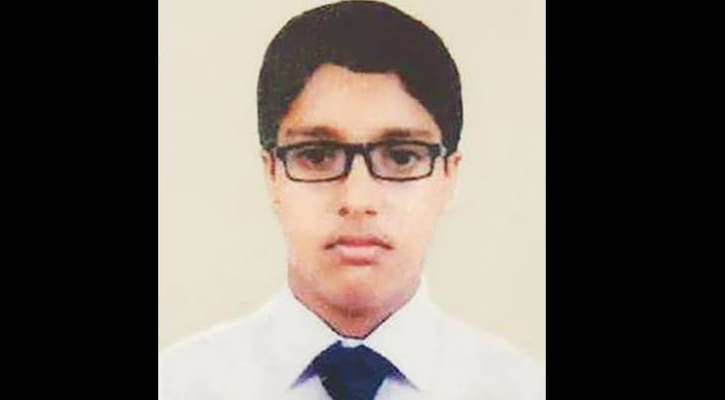Court asks to exhume Naimul’s body for autopsy

A court here on Wednesday (Nov 6) ordered exhumation and autopsy of Naimul Abrar, a student of Dhaka Residential Model College, who died from electrocution at a programme of Kishor Alo, a magazine of the Prothom Alo.
Dhaka Additional Chief Metropolitan Magistrate Aminul Haque's court's order came in the wake of case filed by victim’s father against the editor of Prothom Alo and publisher of Kishor Alo.
Mojibur Rahman, father of Naimul Abrar, filed the case against the Prothom Alo editor and publisher and Kishor Alo publisher Motiur Rahman.
He was charged under Section 304 (ka) of the Penal Code for negligent death of Naimul.
The court also ordered the officer in charge (OC) of the Mohammadpur police station to submit report by December 1, after investigation and merging the case with the unnatural death case that filed after the death of Naimul.
Dhaka Residential Model College student Naimul Abrar was electrocuted during a programme of monthly Kishore Alo on the college campus on Friday afternoon.
A probe committee has been formed to investigate into the electrocution incident of Naimul Abrar, 15, a ninth grader of Dhaka Residential Model College.
Brigadier General Quazi Shameem Farhad, principal of the college, said that the committee was asked to submit the report within the next seven days.
Later on Sunday (Nov 3), a legal notice has been served to the Prothom Alo seeking Tk 10 crore as compensation over the death of Dhaka Residential Model College student Naimul Abrar Rahat.
Lawyer Faiz Ullah (Faiz), on behalf of Obaid Ahmed, former student of the college, sent this notice to Prothom Alo Editor Matiur Rahman and other concerned persons.
Within three days of receiving the notice, the Prothom Alo publisher, editor and editor of Kishor Alo have been asked to compensate Tk 10 crore for the family of Naimul Abrar. Otherwise, the lawsuit will be filed.
In the notice, the Information Secretary, Education Secretary and the Secretary of Power, Energy and Mineral Resources were also requested to take necessary steps to ensure special security measures and secure electricity connection before being allowed to organize such programs at the educational institutes.
